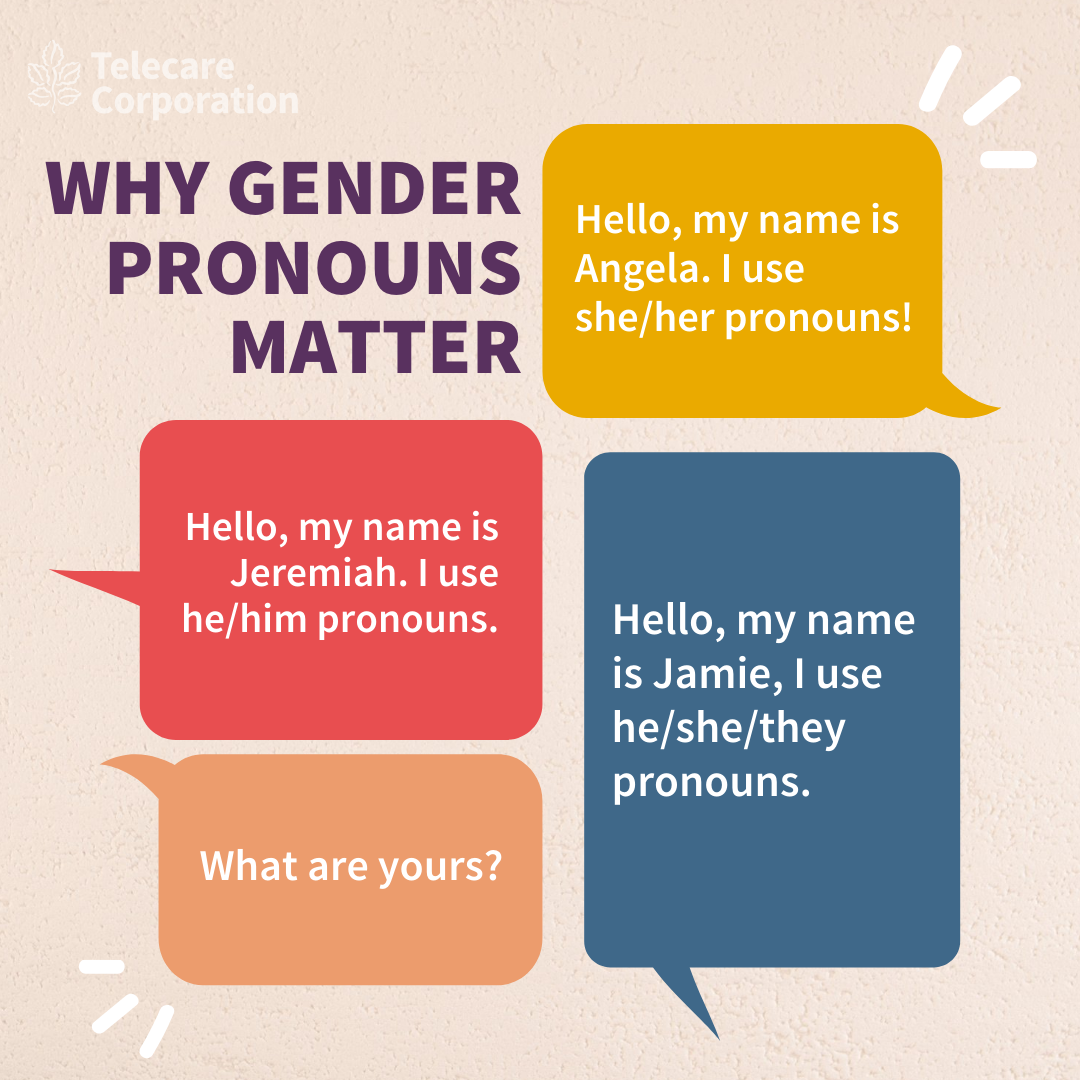Why Using Gender Pronouns Matter
/Each October, we celebrate the contributions, achievements, and important moments in the LGBTQ+ community for LGBTQ+ History Month.
To kick it off, we want to talk about the use of gender pronouns and why they matter in our work at Telecare. Gender pronouns—also known as personal pronouns, or just pronouns—are often the way we identify others. While many gender pronouns exist, common pronouns include he/him, she/hers, and they/them.
The proper use of pronouns is an important way to show an individual respect for their personhood and identity. At Telecare, the use of pronouns ties into our values of respect and non-judgment while supporting the culture and conversations of our clinical model, the Recovery-Centered Clinical System (RCCS). It also is one of many ways to support our commitment to diversity and inclusion.
“We are committed to ensuring all diverse groups — including all races and ethnicities, all expressions of gender identity and sexual orientation, religion, and members of any protected group — feel supported, valued, and have a sense of belonging within Telecare.” — Telecare's Cultural Humility, Equity, and Inclusion (CHEI) Commitment Statement
In this post, we share helpful videos for understanding the importance of using and respecting a person’s gender pronouns, as well as a few ways in which it ties into our work at Telecare.
How Can I Learn More About Gender Pronouns?
Jae Truesdell, they/them, Peer Support Specialist at Villa Fairmont Mental Health Rehabilitation Center, graciously provided a couple of videos that explain the use and importance of gender pronouns. You can click the links below or play any of the videos included in this post.
How Do Gender Pronouns Show Up at Telecare?
As mental health workers, we strive to acknowledge others as they wish to be identified without judgment. This includes the people we serve, as well as coworkers, customers, and the communities we live and work in. By using someone’s correct gender pronouns, we are providing a basic level of respect for their identity.
When meeting someone new, you can introduce yourself with your pronouns, and ask what their pronouns are. For example:
“Hello, my name is Lindsay. My pronouns are she/hers. What are yours?”
Our understanding and awareness around pronouns informs other systems and structures at Telecare. For example, Telecare’s Avatar Electronic Health Records (EHR) also supports the use of pronouns for the people we serve.
What If I Mess Up a Person’s Pronouns?
Accidents happen. It’s important that you recognize the mistake, make the correction, and try again. The best thing to do if you use the wrong pronoun for someone is to say something right away, such as, “Sorry, I meant (insert correct pronoun).”






